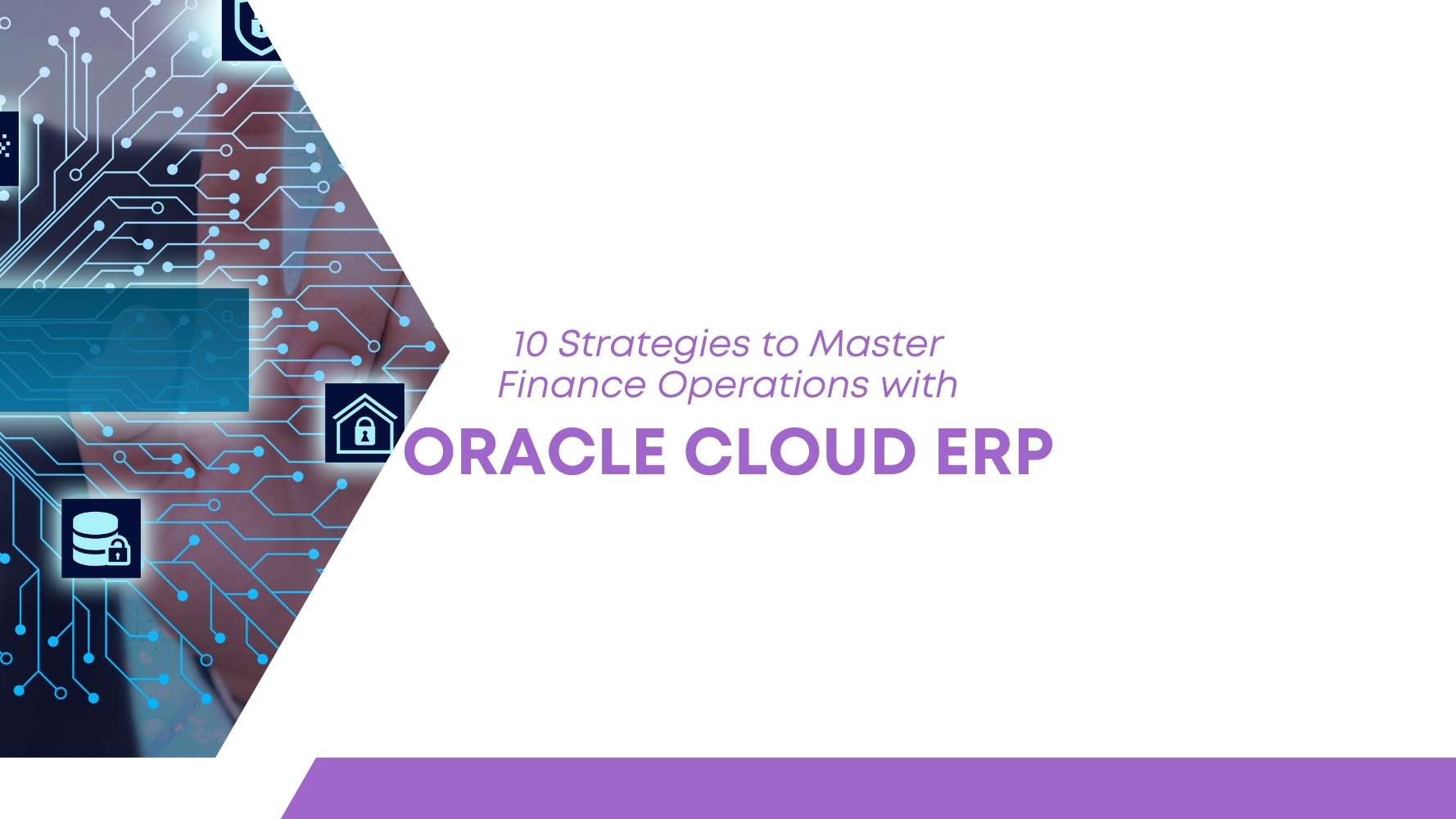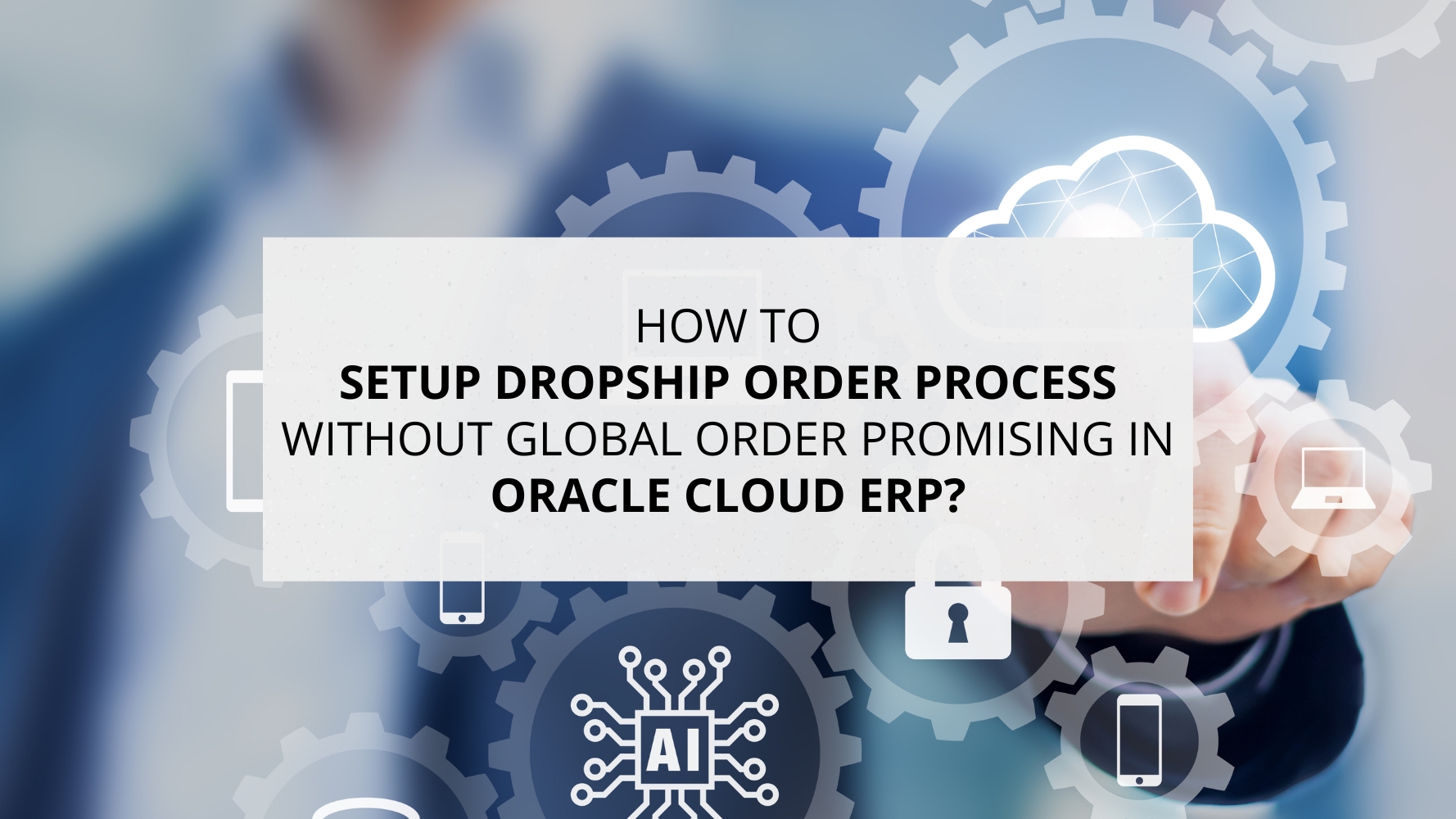In today’s rapidly evolving business landscape, finance operations are critical in driving organizational success and growth. As businesses navigate the complexities of digital transformation and economic uncertainties, leveraging advanced technologies becomes imperative to streamline finance processes and enhance efficiency. Oracle Cloud ERP (Enterprise Resource Planning) stands out as a powerful solution for optimizing finance operations, offering robust automation, integration, and data analytics capabilities. In this blog, we’ll explore ten practical ways to improve finance operations in 2024 using Oracle Cloud ERP, focusing on leveraging features such as Oracle Integration Cloud and NetSuite ERP Software.
1. Streamline Financial Reporting:
Streamlining financial reporting involves leveraging its robust features to generate real-time, accurate reports that provide deep insights into organizational performance. By centralizing data and automating report generation processes, finance teams can eliminate manual errors, reduce reporting cycle times, and ensure compliance with regulatory requirements. Oracle Integration Cloud further enhances this capability by seamlessly integrating data from various sources, ensuring consistency and accuracy in financial reporting. With streamlined financial reporting, businesses can make data-driven decisions, optimize resource allocation, and drive continuous improvement in finance operations.
2. Automate Accounts Payable Processes:
Automating accounts payable processes empowers organizations to streamline invoice processing, approval workflows, and vendor payments. By leveraging advanced automation features, finance teams can eliminate manual tasks, reduce processing times, and improve accuracy in accounts payable management. Oracle facilitates seamless integration with external systems, optimizing the end-to-end accounts payable workflow. This automation enhances operational efficiency, enables better cash flow management, and strengthens supplier relationships. With automated accounts payable processes, businesses can achieve cost savings, mitigate risks, and focus on strategic initiatives for long-term growth and success.
3. Optimize Cash Management:
Optimizing cash management with Oracle Cloud ERP enables businesses to efficiently forecast cash flow, manage bank accounts, and reconcile transactions. Leveraging its robust features, finance teams can gain real-time visibility into cash positions, mitigate liquidity risks, and make informed decisions to optimize working capital. Oracle Integration Cloud fosters seamless integration with bank feeds and other financial systems, streamlining cash reconciliation processes and reducing manual effort. By optimizing cash management, your business can improve economic stability, enhance liquidity management, and maximize returns on investments, ultimately driving sustainable growth and resilience in today’s dynamic business environment.
4. Enhance Budgeting and Planning:
Budgeting and planning empower organizations to create accurate forecasts and align financial goals with strategic objectives. Leveraging its robust features, finance teams can streamline budget creation, collaborate seamlessly across departments, and track real-time performance against targets. Oracle facilitates operational data integration into the budgeting process, providing comprehensive insights for informed decision-making. By enhancing budgeting and planning, businesses can optimize resource allocation, mitigate financial risks, and drive long-term profitability. With Oracle Cloud ERP, you can adapt to changing market conditions and achieve greater agility in your financial management strategies.
5. Improve Procurement Efficiency:
Improving procurement efficiency with Oracle Cloud ERP enables organizations to automate purchasing workflows, streamline supplier management, and enhance contract negotiations. Leveraging its robust features, procurement teams can gain real-time visibility into supplier performance, negotiate favorable terms, and reduce procurement cycle times. Oracle Cloud enables seamless integration with supplier portals and procurement platforms, optimizing collaboration and data exchange. By improving procurement efficiency, businesses can achieve cost savings, minimize supply chain disruptions, and enhance operational agility. With Cloud ERP, organizations can transform their procurement processes to drive greater efficiency and competitiveness in today’s dynamic market landscape.
6. Strengthen Compliance and Risk Management:
Strengthening compliance and risk management helps organizations mitigate financial risks and ensure regulatory adherence. Financial teams can leverage its robust features to establish built-in controls, maintain audit trails, and enforce compliance standards across all financial processes. Oracle Cloud further aids seamless data exchange between compliance systems and Oracle ERP, ensuring data integrity and regulatory compliance. By strengthening compliance and risk management, businesses can minimize exposure to financial liabilities, enhance stakeholder trust, and safeguard their reputation. With Cloud ERP, organizations can confidently navigate complex regulatory landscapes, fostering resilience and sustainable growth.
7. Accelerate Financial Close:
Accelerating the financial close enables organizations to automate reconciliation, journal entries, and consolidation tasks. Leveraging its robust features, finance teams can streamline the entire financial close process, reducing cycle times and ensuring timely reporting. Oracle Integration Cloud facilitates seamless integration with sub-ledgers and external systems, enhancing data accuracy and efficiency. By accelerating the financial close, businesses can gain real-time insights into their financial performance, make informed decisions, and respond promptly to market dynamics. Achieve faster closing cycles, improve operational efficiency, and drive greater agility in their financial operations with Oracle Cloud ERP.
8. Drive Business Intelligence with Analytics:
Driving business intelligence with analytics through Oracle Cloud ERP empowers organizations to gain actionable insights into financial performance and trends. Finance teams can leverage its embedded analytics and reporting tools to access real-time data visualization, predictive modeling, and scenario planning capabilities. Oracle Integration Cloud further enhances this capability by integrating data from multiple sources, providing a comprehensive view of the organization’s financial health. By leveraging advanced analytics, businesses can make data-driven decisions, identify growth opportunities, and mitigate risks effectively. With Oracle Cloud ERP, organizations can unlock the full potential of their financial data to drive strategic decision-making and achieve long-term success.
9. Enhance Employee Productivity with Self-Service:
Enhancing employee productivity with self-service capabilities in Oracle Cloud ERP empowers staff to efficiently manage expense reporting, time tracking, and purchasing requisitions. By providing intuitive self-service interfaces, Oracle Cloud ERP enables employees to access and update relevant information without relying on manual intervention from finance teams. This streamlines administrative processes reduces dependency on support staff, and frees up time for strategic activities. Additionally, integrating Oracle ERP with HR and payroll systems through Oracle Integration Cloud ensures a seamless user experience and enhances productivity across the organization. Employees can drive efficiency and collaboration with self-service capabilities while enabling finance teams to focus on value-added tasks.
10. Scale and Adapt with Cloud Flexibility:
Oracle Cloud ERP offers scalability and flexibility to support business growth and adapt to changing market dynamics. Leveraging its scalable architecture, businesses can easily adjust resource allocation, accommodate growth, and expand operations without significant infrastructure investments. Oracle Integration Cloud supports seamless integration with other cloud applications and systems, ensuring interoperability and agility in responding to changing requirements. With cloud flexibility, organizations can rapidly deploy new functionalities, innovate at scale, and stay ahead of the competition. Oracle Cloud ERP enables businesses to embrace change, drive digital transformation, and achieve long-term success in today’s dynamic business environment.
In conclusion, Oracle Cloud ERP offers a comprehensive suite of tools and capabilities to enhance finance operations and drive business success in 2024. By leveraging features such as Oracle Integration Cloud and NetSuite ERP Software, organizations can streamline processes, improve efficiency, and make informed decisions to navigate today’s business environment’s challenges and opportunities. As businesses prioritize digital transformation, Oracle Cloud ERP emerges as a strategic solution for optimizing finance operations and driving sustainable growth.
Could you automate tasks, improve forecasting, and gain real-time financials?
Contact Tangenz today to learn more about how Oracle Cloud ERP can transform your finance operations.




